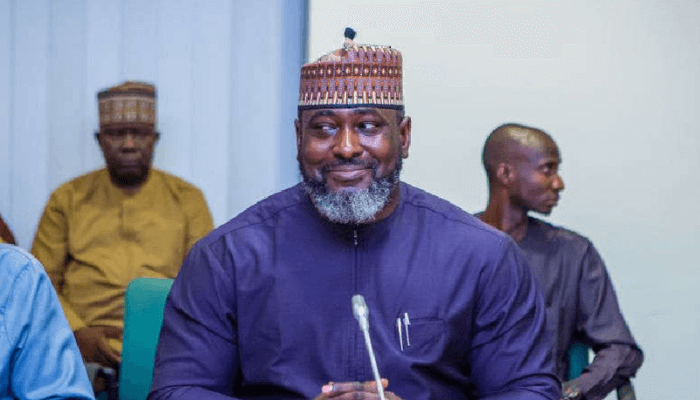
The Nigerian Economic Summit Group (NESG) has expressed optimism about improved growth of the economy from the second half of the year if the executive orders and other economic plans by the Federal Government are properly executed.
The Group maintained that there had been relative stability in the foreign exchange market, even as Nigerians and businesses would witness more ease in the system if the plans in the pipeline were implemented.
Chief Executive Officer of the NESG, Dr Tayo Aduloju, stated this during a media engagement ahead of the Group’s Think Tank’s 30th Anniversary.
While urging the Central Bank of Nigeria (CBN) to continue its inflation targeting, he was optimistic that foreign portfolio investment (FPI) flows would improve significantly, especially if the government’s stabilisation plan goes to the execution phase.
Notwithstanding the country’s economic challenges, the NESG chief stressed that careful coordination of macroeconomic policies and government transparency are required to fix the problem, even as he called for a more cohesive and systematic sequencing of policy reforms.
He highlighted some of the challenges to include a range of governance issues in the last three decades, which he blamed for creating the current crisis.
“We think that in the second half of the year, growth would improve if some of these things in the pipeline happened. Inflationary pressure will likely amplify if food pressure doesn’t improve. If you look at the food composite of inflation, it remains very high.
“A couple of years ago, we spoke up about the Ways and Means and the system we were running then, it was problematic. If you remember, we were battered both in public and in the media. Some of us were persecuted and chased around for saying so, for discussing the transparency issue and we are here. We told the truth and it cost us. The problems have now compounded.
“Those of you who have been listening to our food security briefing for three years, we said we were heading here. Even earlier this year, we pointed out that the numbers were dropping, and the cultivation rate was dropping. We signaled that very likely elections would aggravate it because we were under-cultivated because of the election cycle. Nobody went to the farm as the election was the business of the year,” he said.
Regarding the food crisis in the country, Aduloju called for collaborative efforts among governments to address the growing issue, which he warned could lead to higher inflation.
He pointed out that Nigeria currently cultivated much less land than in the past, affecting overall food production. Additionally, the country’s population is growing faster than its ability to produce food.
“The first question we must ask ourselves is whether we are producing enough food. Is food available at the scale we require? We must consider all security threats, including human security, soil security, water security, land security, and input security such as fertilisers and pesticides.
“The system is under stress and needs a systemic approach to address it. Moreover, affordability is an issue; inflation is driven not only by food production but also by the effects of imports on prices,” Aduloju said.
Shedding more light on the 30th anniversary of the think tank, the NESG boss declared that it was a time for deep reflection.
“In 30 years, we have watched the economy move from IBB-led, Abacha-led, Abdulsalami-led, Obasanjo-led, Yar-Adua, Jonathan, Buhari and now Tinubu. The role we have played allows us to ask difficult questions. We have planned the National Economic Dialogue for next month and the idea is just to reflect,” he said.
According to the NESG boss, from projections, Nigeria will be one of the most populous countries on the face of the planet by 2050 and a young populous country.
“By 2050, we will be 415 million and 70 per cent of us will be below the age of 35. So, we cannot afford not to grow in a way that absorbs people into productive work. We cannot afford it. What pivot will we make? That is the focus of the summit,” he added.






